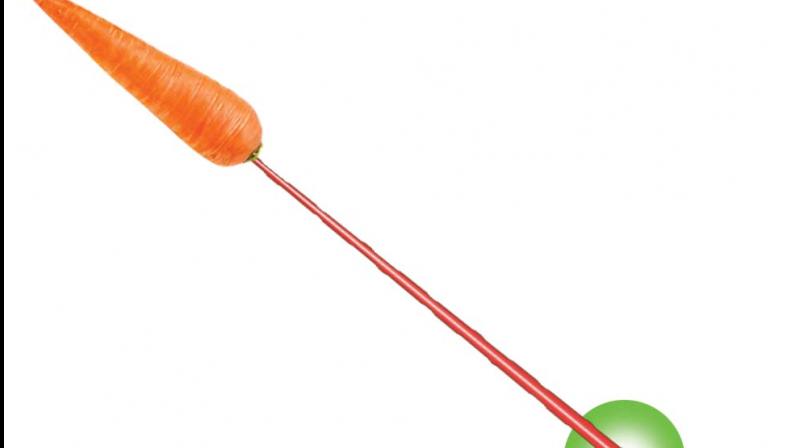IIT Madras researchers generate lasers from carrots

Chennai: Using the Nobel Laureate Sir CV Raman's process, researchers from IIT Madras have demonstrated the possibility of generating biocompatible lasers from carrots. This has immense potential for future applications in bio-imaging, optical spectroscopy and sensing, researchers said.
“We were excited to see lasing in fresh carrots due to the carotene and cellulose found in them,” said Venkata Siva Gummaluri, a research scholar from the department of physics in IIT-M. A particular class of lasers called random lasers have been demonstrated in carrots.
While traditional polymers used were toxic and non-biodegradable, there has been the search for more eco-friendly fluorescent polymers.
“To achieve green photonic technology, we have used a medium which is fully bio-degradable and biocompatible,” said Sivarama Krishnan, one of the researchers and assistant professor, department of physics, IIT Madras.
One of the key applications for the laser would be bio-imaging.
“It could be useful from scientific lab to medical diagnostics. Compared to laser diodes and other solid state lasers, the cost would be significantly less as the medium is naturally available one,”he said.
Cellulose fibres have shown to facilitate multiple scattering of photons, suggesting the possibility of an organic/eco-friendly bio-compatible scattering medium.
Carrots, in addition to having carotenoids, also have cellulose fibres that contribute to multiple scattering of photons and resultant optical amplification for Raman random lasing.
“It’s one student's idea to experiment with natural media. We can go further. We will work on advancing this technology so we can make it brighter,” said Mr Sivarama Krishnan.
“One of the advantages of this laser is it sacrifices the coherence of the light. In some cases like bio-imaging, you want light sources that are bright but not coherent,” he added. The laser is also easy, safe to handle and use.
This work published in the leading journal of the Optical Society of America, Optics Letters,
Being very robust and highly reliable, this ‘kitchen laser’ has a very good linear response for temperature which could be used for temperature sensing too.
“The need for green photonic technologies in obvious in the current times where sustainability, bio-compatibility and degradability are of paramount importance,” Professor C. Vijayan from IIT Madras said.

